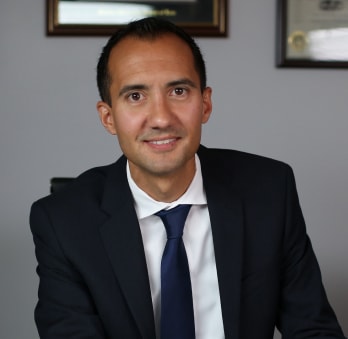
As expected, Minnesota has passed a new revenge porn law. Minnesota will become the 33rd state to criminalize revenge porn. Lawmakers began debating a revenge porn law ever since the Court of Appeals declared Minnesota’s former criminal defamation law unconstitutional in our Turner case.
Lawmakers formed a revenge porn working group designed to gain input into what the new revenge porn law should look like. Attorney John Arechigo was a member of the working group. The new law takes
NONCONSENSUAL DISSEMINATION OF PRIVATE SEXUAL IMAGES
Minnesota’s new revenge porn law has been titled Nonconsensual Dissemination of Private Sexual Images. The law punishes anyone who intentionally disseminates a private sexual image of another.
The law does not require the person disseminating the photo to actually know the other person did not consent to the dissemination. Rather, it’s enough if the circumstances show the person should have known the subject of the photo did not consent to the dissemination.
The law also does not require that the state prove the actor actually knew the subject had an expectation that the photo would remain private. The law makes
AGGRAVATING CIRCUMSTANCES
The act of disseminating private sexual images is treated as a felony punishable by up to three years in prison if there is sufficient proof of any of the following circumstances:
- the subject of the image suffered financial loss due to the dissemination
- the actor disseminated the image with an intent to profit off of the dissemination
- the actor maintained a website for the purpose of disseminating these types of images
- the actor posted the image on a website
- the actor disseminated the image with an intent to harass the subject
- the actor obtained the image through computer hacking
- the actor had previously been convicted of this offense.
NEGLIGENCE VS. SPECIFIC INTENT
The biggest question surrounding the new Minnesota revenge porn law is what’s referred to as the legal standard for punishment. The nonconsensual dissemination of private sexual images law punishes actors under a negligence standard in that it does not require proof that the actor acted with any sort of intent to harm the subject or intent to cause some level of emotional distress in disseminating the photos. The law punishes the act of disseminating the images, regardless of the actor’s intent.
Criminal laws typically require two elements before criminalizing conduct – the act itself and a level of criminal intent to commit the crime. Criminal laws typically do not punish innocent conduct, that is, conduct that may be a crime but the circumstances show the person did not act with the necessary level of intent to commit the crime.
This is essentially negligence. We usually do not criminalize negligence because there is not a sufficient level of criminal intent to actually commit the underlying criminal offense. Let’s use Theft as an example.
Theft requires proof that a person had
If the person possessing the property didn’t actually know they had the property, for example, then there clearly is no intent to permanently deprive the property owner of possession. There is no guilty mind to punish.
Minnesota’s new revenge porn law criminalizes negligence. It does not require proof that the actor disseminated the images with any sort of underlying criminal intent. This may very well turn out to be a fatal flaw in the law exposing it to a constitutional challenge.
The new law also arguably encroaches on areas of free speech protected by the First Amendment. Activists argue the law punishes conduct – the act of disseminating – and, therefore, does not encroach of free speech issues. They argue the new revenge porn law essentially punishes conduct invading one’s privacy. However, it is well established that distribution of photos, video, recordings, and other forms of media falls under the first amendment’s protection.
Expressive conduct – that is, behavior that combines some sort of conduct with a level of speech – can be protected by the first amendment. Laws that punish the content of speech walk a fine line in terms of their constitutionality. It will be interesting to find out how Minnesota courts will view the new revenge porn law.
Courts may very well find that the new law punishes speech. If that is indeed the finding reached by a court, the state may have a hard time arguing the law is constitutional.
EXPERIENCED MINNESOTA CRIMINAL DEFENSE LAWYERS
Minnesota’s non-consensual dissemination of private sexual images is a new law. It will take time for the courts to adapt and get a handle on the law. We previously successfully challenged the constitutionality of the prior law punishing revenge porn. The new law may have a number of constitutional shortcomings, as well. Working with the legislative working group gives us the inside knowledge needed to challenge this law.
CONTACT US
If you are facing a charge under the new revenge porn law, please contact us to schedule a free consultation.



